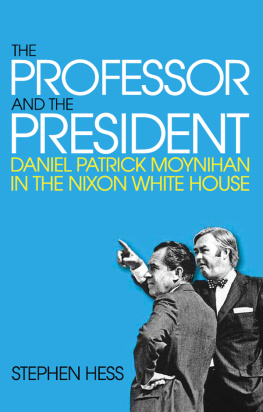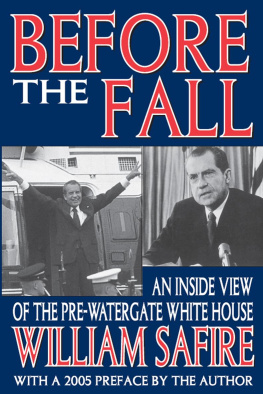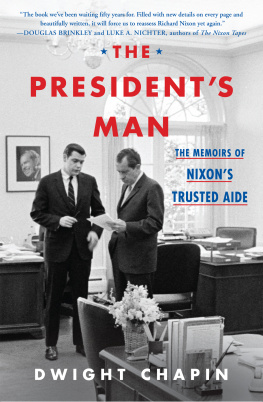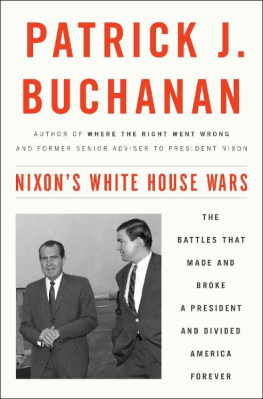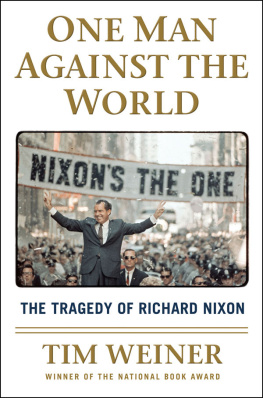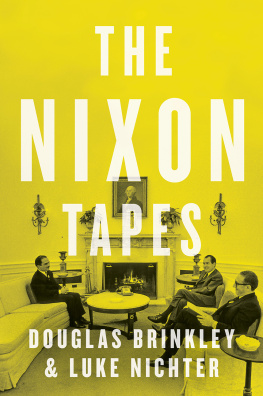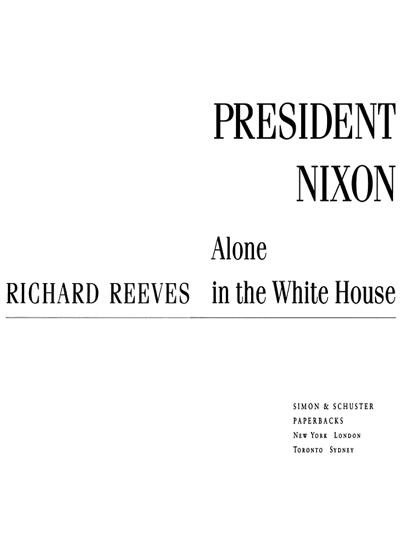Richard Reeves - President Nixon: Alone in the White House
Here you can read online Richard Reeves - President Nixon: Alone in the White House full text of the book (entire story) in english for free. Download pdf and epub, get meaning, cover and reviews about this ebook. year: 2001, publisher: Simon & Schuster, genre: Detective and thriller. Description of the work, (preface) as well as reviews are available. Best literature library LitArk.com created for fans of good reading and offers a wide selection of genres:
Romance novel
Science fiction
Adventure
Detective
Science
History
Home and family
Prose
Art
Politics
Computer
Non-fiction
Religion
Business
Children
Humor
Choose a favorite category and find really read worthwhile books. Enjoy immersion in the world of imagination, feel the emotions of the characters or learn something new for yourself, make an fascinating discovery.

- Book:President Nixon: Alone in the White House
- Author:
- Publisher:Simon & Schuster
- Genre:
- Year:2001
- Rating:4 / 5
- Favourites:Add to favourites
- Your mark:
President Nixon: Alone in the White House: summary, description and annotation
We offer to read an annotation, description, summary or preface (depends on what the author of the book "President Nixon: Alone in the White House" wrote himself). If you haven't found the necessary information about the book — write in the comments, we will try to find it.
Who was Richard Nixon? The most amazing thing about the man was not what he did as president, but that he became president. In President Nixon, Richard Reeves has used thousands of new interviews and recently discovered or declassified documents and tapes including Nixons tortured memos to himself and unpublished sections of H. R. Haldemans diaries to offer a nuanced and surprising portrait of the brilliant and contradictory man alone in the White House.
President Nixon is a startling narrative of a desperately introverted man who dreamed of becoming the architect of his times. Late at night, he sat upstairs in the White House writing notes to himself on his yellow pads, struggling to define himself and his goals: Compassionate, Bold, New, Courageous...Zest for the job (not lonely but awesome). Goals reorganized govt...Each day a chance to do something memorable for someone. Need to be good to do good...Need for joy, serenity, confidence, inspiration.
But downstairs he was building a house of deception. He could trust no one because in his isolation he thought other people were like him. He governed by secret orders and false records, memorizing scripts for public appearances and even for one-on-one meetings with his own staff and cabinet. His principal assistants, Haldeman and Henry Kissinger, spied on him as he spied on them, while cabinet members, generals, and admirals spied on all of them rifling briefcases and desks, tapping each others phones in a house where no one knew what was true anymore.
Nixons first aim was to restore order in an America at war with itself over Vietnam. But in fact he prolonged the fighting there, lying systematically about what was happening both in the field and in the peace negotiations. He startled the world by going to communist China and seeking dtente with the Soviet Union and then secretly persuaded Mao and Brezhnev to lie for him to protect petty White House secrets. Still, he was a man of vision, imagining a new world order, trying to stall the deadly race war he believed was inevitable between the West, including Russia, and Asia, led by China and Japan. At home, he promised welfare reform, revenue sharing, drug programs, and environmental protection, and he presided, reluctantly, over the desegregation of public schools all the while declaring that domestic governance was just building outhouses in Peoria.
Reeves shows a presidency doomed from the start. It begins with Nixon and Kissinger using the CIA to cover up a 1969 murder by American soldiers in Vietnam that led to the theft and publication of the Pentagon Papers, then to secret counterintelligence units in the White House and finally to the burglaries and cover-up that came to be known as Watergate.
Richard Reevess President Nixon will stand as the authoritative account of Nixon in the White House. It is an astonishing story.
Richard Reeves: author's other books
Who wrote President Nixon: Alone in the White House? Find out the surname, the name of the author of the book and a list of all author's works by series.

